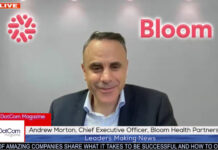In today’s rapidly evolving digital landscape, paid social strategy has become an essential component of any marketing campaign. With businesses striving for higher engagement, better ROI, and more effective targeting, leveraging AI in paid social strategy has proven to be a game-changer. AI-powered tools and algorithms help brands optimize their paid social efforts by streamlining content creation, enhancing audience segmentation, and improving ad delivery. Paid social strategy is no longer a simple process of allocating budgets to various platforms. It now involves complex, data-driven decisions that require sophisticated tools, and AI is at the forefront of this transformation. As we delve deeper into the impact of AI on paid social strategy, we’ll uncover key insights that every marketer needs to know to remain competitive in this fast-paced environment.
1. AI Enhances Ad Targeting Precision:
One of the primary ways AI is revolutionizing paid social strategy is through its ability to enhance ad targeting. Traditional methods of targeting relied heavily on demographic data and general behavior, but AI takes this a step further by analyzing vast amounts of user data in real time. Through machine learning algorithms, AI can identify patterns, preferences, and trends that were previously undetectable. By using AI, marketers can target specific segments with high precision, ensuring that ads are shown to the most relevant audiences at the most opportune moments. This level of accuracy leads to higher engagement rates and improved ROI for paid social campaigns.
2. Improved Content Creation and Optimization:
Creating content that resonates with a target audience is critical in any paid social strategy. However, producing the right content can be a time-consuming process. AI helps streamline this by offering insights into what type of content works best based on user behavior. AI-powered tools analyze engagement metrics, such as likes, shares, comments, and click-through rates, to predict the kind of content that will yield the highest returns. Additionally, AI can automatically adjust ad creatives in real-time, optimizing them for better performance across different platforms. This means that ads are more likely to resonate with the intended audience and perform better, all while saving time and effort on content creation.
3. Real-Time Bid Management:
In the world of paid social strategy, bidding can make or break a campaign’s success. AI excels at managing bids by continuously analyzing data from multiple sources, including competitor behavior, audience engagement, and market trends. Through machine learning, AI can optimize bidding strategies in real-time, ensuring that brands are getting the most value from their ad spend. This dynamic approach to bidding helps marketers avoid overspending while maximizing the effectiveness of their campaigns. AI-driven bid management systems can predict the best bid amounts to ensure that ads appear to the right audience at the right time, ultimately improving the performance and cost-efficiency of paid social strategies.
4. Advanced Audience Segmentation:
Audience segmentation is an essential aspect of any paid social strategy, but the process of segmenting audiences effectively has always been a challenge. Traditional segmentation methods often relied on broad categories or predefined personas, but AI enables a much more granular approach. By analyzing vast amounts of data, AI can identify micro-segments of users with specific interests, behaviors, and preferences. This allows marketers to create more personalized ad experiences that resonate with smaller, highly-targeted groups. With AI, paid social strategies can go beyond basic demographics to ensure that every ad reaches the audience most likely to convert.
5. Enhanced Customer Insights and Behavior Prediction:
AI is also a powerful tool for gaining deeper insights into customer behavior, which is invaluable for crafting more effective paid social strategies. By analyzing user interactions across multiple channels, AI can identify trends, preferences, and even potential pain points within the customer journey. Predictive analytics powered by AI can help marketers anticipate future customer actions and behaviors, allowing them to adjust their paid social strategy accordingly. For example, if AI detects that a particular audience segment is likely to make a purchase in the near future, marketers can target that segment with ads designed to push them through the sales funnel.
6. Optimizing Social Media Platforms for ROI:
AI is also adept at helping marketers optimize their presence across various social media platforms. Different platforms have unique algorithms, audience types, and engagement patterns, and understanding how to leverage these differences is crucial for success. AI tools can analyze the performance of ads across multiple platforms, identifying which platforms generate the best results for specific audience segments. With this data, marketers can adjust their paid social strategy by allocating budgets more efficiently, choosing the right platforms for specific campaigns, and refining ad creatives to match the audience preferences on each platform. This approach ensures a higher return on investment for paid social campaigns.
7. AI-Driven Ad Testing and Performance Analysis:
Testing and optimizing ads is a core part of any paid social strategy, but it can be time-consuming and resource-intensive. AI simplifies this process by enabling automated ad testing, where multiple versions of an ad can be tested simultaneously. AI algorithms track the performance of each ad variant in real time, identifying which elements (e.g., copy, visuals, CTAs) are driving the most engagement. Based on this data, AI can make automatic adjustments to improve ad performance, ensuring that the best-performing variations are shown to the right audience at the right time. This continuous optimization leads to better results and more effective use of ad spend.
8. Personalization at Scale:
Personalization has become a critical element of any successful paid social strategy. However, creating personalized content at scale is a challenge, especially when dealing with large audiences. AI solves this problem by automating the process of content customization, ensuring that every individual receives tailored messages based on their unique behaviors, interests, and interactions with previous ads. By leveraging AI, marketers can create personalized experiences at scale, without sacrificing efficiency or effectiveness. This level of personalization is a key driver of higher conversion rates and more impactful campaigns.
9. Improving Social Listening and Brand Sentiment Analysis:
Social listening is a key component of any paid social strategy, as it helps marketers stay in tune with audience sentiment and industry trends. AI-powered tools can analyze vast amounts of social media data to detect emerging trends, customer sentiments, and potential crises. By understanding how audiences perceive a brand or campaign, AI allows marketers to adjust their messaging and strategy in real time. Sentiment analysis powered by AI can identify negative or positive trends and help brands pivot their approach before small issues escalate into larger problems. This ability to monitor brand health and adjust strategies accordingly is invaluable for long-term success in paid social.
10. Enhancing ROI with AI Automation:
At the heart of AI’s impact on paid social strategy is its ability to drive automation, reducing the need for manual intervention and allowing marketers to focus on strategy rather than execution. AI tools automate various aspects of paid social campaigns, including bidding, content creation, audience targeting, and performance analysis. This automation not only increases efficiency but also ensures that campaigns are continuously optimized to deliver the best results. With AI in charge of these tasks, marketers can improve their ROI by reducing costs, optimizing ad spend, and driving more relevant interactions with their audience.
Conclusion:
As AI continues to evolve, its role in paid social strategy will only become more critical. From enhancing targeting and personalization to automating ad testing and performance analysis, AI is fundamentally changing how brands approach their paid social campaigns. By embracing AI in paid social strategy, marketers can unlock new levels of efficiency, engagement, and ROI, ensuring their campaigns stand out in an increasingly competitive landscape. As the future of social media advertising becomes more data-driven and automated, those who harness the power of AI will be best positioned for success.

















